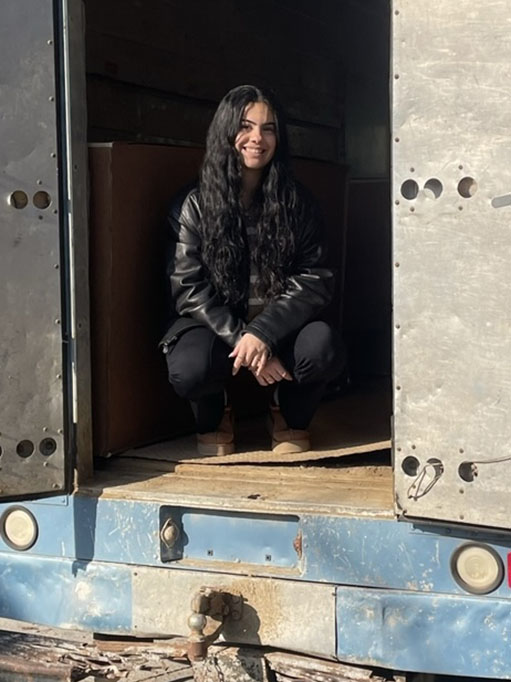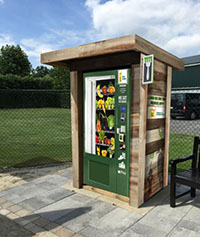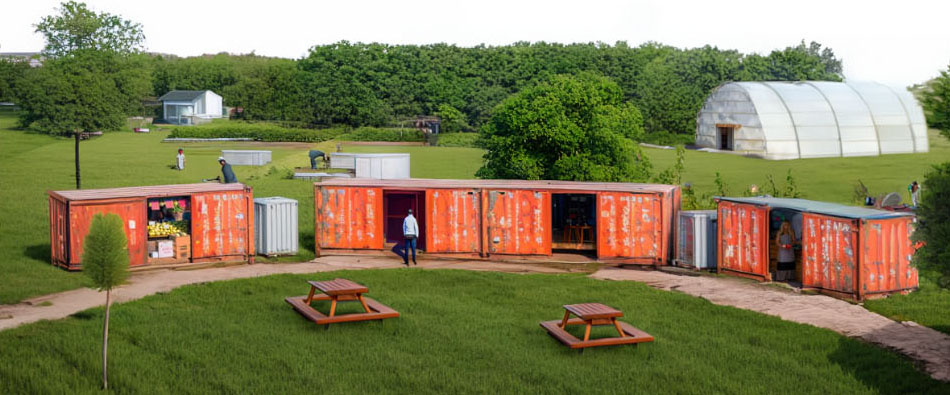Transforming Communities: Empowering Students Through the Ford College Network Tech for Social Impact Accelerator
At Ford Philanthropy, we believe in the power of innovative thinking to drive meaningful change in our communities.

In collaboration with the Henry Ford Learning Institute, the Ford College Network (FCN) Tech for Social Impact Accelerator and Pitch Showcase works with select Historically Black Colleges and Universities (HBCUs) and Hispanic Serving Institutions (HSIs) to provide project-based learning opportunities for students. Over two semesters, student teams create products addressing community challenges, leading up to a pitch showcase, which was held in April this year. Here are three outstanding projects that received funding for their potential to create impact in communities.
Innovative Solutions from Future Leaders
• Wayne State University: Ford's Farmers – Zero Waste Produce
Tackling the challenges faced by farmers in branding, marketing, and market stand costs, the Wayne State team developed Ford's Farmers: Zero Waste Produce. This technology-driven solution streamlines sales and creates flexible community spaces, allowing farmers to connect directly with consumers and ensuring fresh, local produce reaches those who need it most.
• Florida A&M University: PulseCare
Addressing the inaccuracies of conventional pulse oximeters for people with darker skin tones, the Florida A&M team created PulseCare. This innovative digital tool enhances traditional pulse oximeter readings, tackling long-standing disparities in medical diagnostics and providing more accurate health data for all.
• Florida International University: Mango
Recognizing the challenges small-scale farmers face, the Florida International University team developed Mango, an online marketplace connecting small farms with local consumers, restaurants, and distributors. Leveraging artificial intelligence and data analytics, Mango streamlines order management and provides growth strategies, boosting revenue and making locally produced food more accessible.
A Vision for Food Security

As active community members at Wayne State University in Detroit, the Ford's Farmers team is intimately aware of the city's struggles as a food desert. "Inspired by this, we aimed to create a small-scale solution that we could pop up all over the city, providing an affordable 'grocery store' for both buyers and sellers," said Sarah Saab, a winning team member.
In Miami, the Mango team from Florida International University (FIU) identified food waste in restaurants as a problem in their community. With Ford's support, the team learned the importance of truly listening to their target market. "The lessons on human-centered design from the Ford accelerator were critical in ensuring we designed this project to address a real need," said Olbin Gil from the winning team at FIU.
Winning the competition was a victory for each school and their communities. "Before the accelerator program with Ford, all of our projects were hypothetical, never having the resources to effect real change. I am incredibly grateful for this opportunity," shared Saab.
Learn more about the FCN Tech for Social Impact Accelerator.




